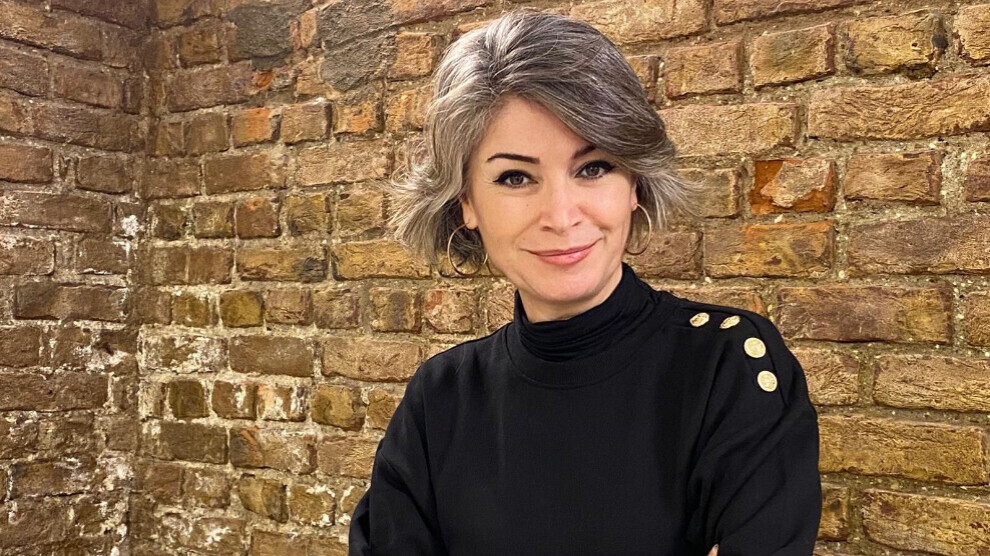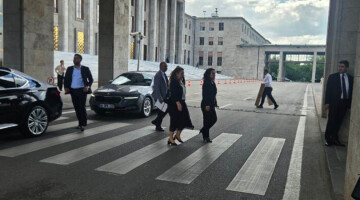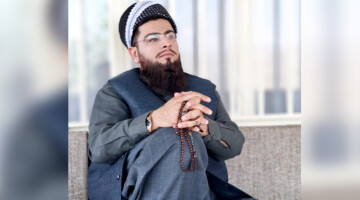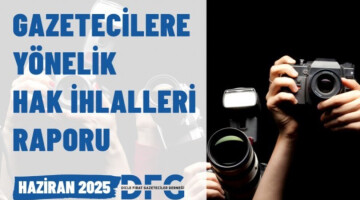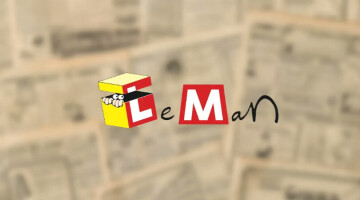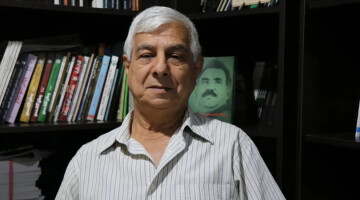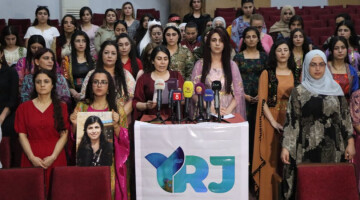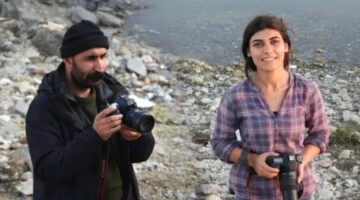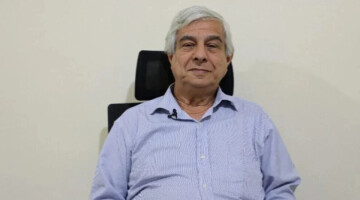Journalist Nezahat Doğan spoke to ANF about the discussions that have been ongoing since last October and emphasized that they applied to interview Abdullah Öcalan, the key figure in the Kurdish issue, to find answers to a fundamental question, ‘What is happening?’. She said: "With Devlet Bahçeli's remarks, Abdullah Öcalan has been acknowledged as an interlocutor in parliament."
Doğan described this as a potential turning point in the 100-year-old Kurdish question. The isolation imposed on Abdullah Öcalan continues, despite his role as a key interlocutor in discussions on resolving the Kurdish issue and initiating dialogue. The isolation was officially acknowledged by Turkish state officials last October.
The government limits the discussions to a narrow framework of 'disarmament' and 'terrorism,' restricting the scope for meaningful dialogue and resolution. While the Turkish public closely follows potential messages from Imrali, journalists Nezahat Doğan and Dicle Müftüoğlu have applied to the Ministry of Justice for permission to visit Imrali, while journalist Diren Yurtsever has requested to communicate with Abdullah Öcalan via email.
Ministry officials took a moderate approach
Journalist Doğan described the experience of applying to the Ministry of Justice as "surprising" and continued: "We went to the ministry and said, 'We are applying for a visit as journalists.' They asked us, 'Are you requesting an interview with Abdullah Öcalan?' and we replied, 'Yes.' They even explained what steps we could take to expedite the processing of our application. The moderate approach we encountered was surprising to us."
A special system has been established for Imrali applications
Doğan said that ministry officials provided them with a tracking number for their application and explained how the process would proceed. She was told that inquiries could be made using this tracking number and added that they had not yet received any response so far. Commenting on the way their application was accepted, Doğan said: "It is clear that our request will be evaluated within a decision-making system." She also said she had the impression that a special system was put in place within the Ministry of Justice to handle such applications.
Many have applied to visit Imrali Prison
Doğan said that, to her knowledge, no prisoner in Turkey had ever met with journalists before. She also noted that she had the impression that other people had also applied to visit Imrali. When asked who else might have applied, she responded: "During the 2013-2015 Resolution Process, public support exceeded 60 percent. However, parliament was not actively involved, NGOs and civil society organizations were largely absent, and both the MHP and CHP opposed the process. In this new phase, we can see from these applications that the groundwork for negotiations has been established."
If the necessary conditions are met, many journalists will want to visit Imrali
Doğan said that if the appropriate groundwork is established, many journalists will seek to visit Imrali for an interview. She recalled that the idea had been planned long ago and that applications had been submitted in collaboration with the Dicle Fırat Journalists Association (DFG) and the Mesopotamia Women Journalists Association (MKG) after discussions with numerous journalists from the Free Media. She said: "I wish we could have organized this application in a much stronger, collective, and structured way, advocating for the language of peace, resolution, and democratization with journalistic responsibility and reflexes.'' Doğan criticized journalists who identify as opposition figures but ignore the Kurdish issue, limiting themselves to superficial discussions. She also emphasized that instead of just three female journalists applying, it would have been more impactful if 20 to 30 journalists from all walks had submitted their applications to the Ministry of Justice simultaneously.
Some journalists applied for a meeting via their connections to MHP
Nezahat Doğan said that some journalists had also applied to visit Imrali and were waiting to declare their applications after the anticipated announcement. She noted that not only figures from pro-government and opposition media but also well-known names from social media platforms might have applied for a visit. Doğan also revealed that some opposition figures had pursued their applications through different channels. "There are journalists who have expressed their desire for a meeting, applying through the very channels associated with the political space that Devlet Bahçeli initiated," she said.
Inequality between sides
Nezahat Doğan emphasized that the government has the means to communicate its message to society, while Kurdish people's leader Abdullah Öcalan remains in isolation, highlighting the imbalance between the two sides. She stressed that a fair resolution to the Kurdish issue requires both parties to have equal access to communicate with the public. According to Doğan, enabling civil society and journalists to visit Imrali is essential for achieving this balance.
The process will become more critical after the historic statement
Addressing the government's attempt to frame the issue solely around disarmament, Nezahat Doğan said: “What constitutional and legal steps will be taken? The process will become much more critical following the upcoming historic statement. In this period, where the Kurdish people remain cautious, the most crucial question will be what concrete steps the state takes in response to the announcement.”
Abdullah Öcalan remains in isolation
Nezahat Doğan emphasized the necessity of shifting the Kurdish issue from conflict to dialogue. She underlined the importance of bringing Abdullah Öcalan’s right to hope into the discussion and ensuring a legal framework for a resolution. Despite ongoing debates, Doğan pointed out that Öcalan’s isolation remains in place. She specifically emphasized that the Free Press has been disproportionately targeted, noting that in the past six months, five journalists have been killed, and in the last month alone, fifteen journalists have been imprisoned.
We want to make our voices heard
Emphasizing that rights-based journalism is not only about asking questions and investigating but also requires courage, conscience, and responsibility, Nezahat Doğan criticized journalists who identify as opposition with the following words: "Journalists who call themselves opposition only speak within their own circles, ignoring those who, despite all the risks, pursue the truth. We do not want to hear only our own voices; we want to make this voice heard by society. That is why we made our application public."
Journalistic efforts are weakening
Nezahat Doğan stated that they also aim to pave the way for more journalists to apply and referenced Mehmet Ali Birand’s journalism. She pointed out that journalistic efforts have stalled, and the practice of journalism in the interest of informing society correctly has weakened. Sharing her perspective on the current situation, she said: "If this process evolves toward peace and concrete steps are taken toward a resolution, those who are currently hesitant, distant, and reluctant to speak will become much more engaged."

